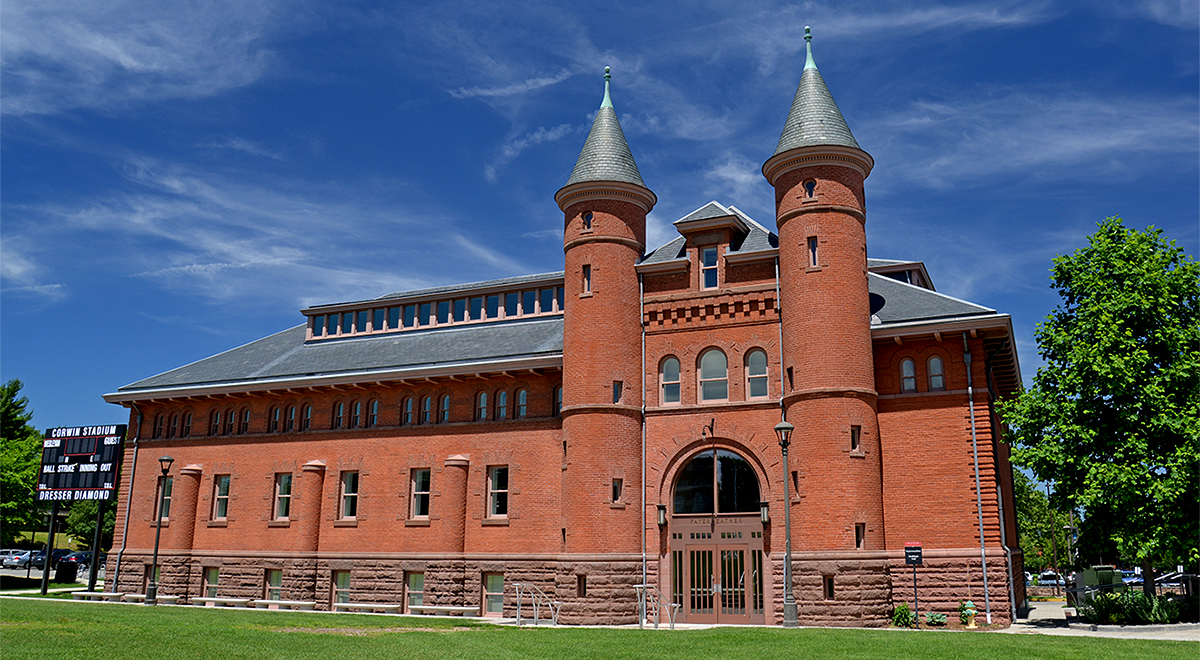Wesleyan in the News: April 2025

By: Phuc Ngo ’27
President Michael S. Roth ’78 penned an article for TIME discussing the strategy of de-escalation versus appeasement that universities and other institutions have used in response to attacks on higher education. Roth argues in the piece that while de-escalation with Trump would be a desirable solution, it is currently difficult to achieve. The failure of de-escalation so far has led to appeasement, a far less effective and dangerous strategy. In conclusion, Roth stated, “many decision makers are afraid, and so they choose a path of appeasement with a White House bent on revenge and aggrandizing power, hoping it will work. It won’t.”
The Boston Globe featured Roth in an article discussing solidarity and collaboration between universities in the face of the Trump administration’s policies. Roth compares the administration’s policies to those of Hungarian Prime Minister Viktor Órban, again warning against appeasement.
Bloomberg spoke with Roth for a March 28 article on ‘disaster planning’ by university administrators. “The level of fear among my colleagues who are running institutions is something I’ve never seen before,” said Roth. “I think if we keep our heads down, we’re going to lose our freedoms.”
Bloomberg also quoted a Roth MSNBC appearance in a March 23 article on university leaders’ failure to protect free speech and academic independence. The piece singled Roth out as “one of the rare college leaders who appears unbowed.”
An article in The Guardian comparing the Trump administration’s policies with McCarthyism also singled out Roth as an outspoken critic of Trump. Again speaking on the strategy of appeasement, Roth labelled it “anticipatory obedience … a form of cowardice.”
Le Monde, a premier newspaper in France, interviewed Roth for a story on the Trump administration’s intimidation of American institutions.
Roth also appeared on the “Fast Politics with Molly Jong-Fast” podcast to discuss threats to higher education from the Trump administration and the arrest of pro-Palestinian protestor Mahmoud Khalil. “The only thing we could do is speak up about it and say this is not the America we want to live in,” Roth said.
Robyn Autry, associate professor of sociology and faculty director of the Allbritton Center for the Study of Public Life wrote an article for MSNBC on President Trump’s March 27 executive order, titled “Restoring Truth and Sanity to American History,” threatening to pull funding from the Smithsonian for its ‘divisive, race-centered ideology.’ Autry discussed the executive order in the context of Trump’s repeated attempts to reframe American history for the sake of his and his party’s agenda. “This is not just about representations [of history],” emphasized Autry. “It’s about knowledge itself and the use of the knowledge to justify inequality.”
John E. Andrus Professor of Sociology, Emeritus, Rob Rosenthal called for university presidents to stand up to the Trump administration’s intimidation of higher education in a piece for The Hechinger Report. “College presidents cannot be silent as individual schools are attacked,” Rosenthal said. “They need to speak out as a group against each and every incursion.”
Professor of Environmental Science Michael Singer was mentioned in a story from The Guardian on how different animal species use plants with medicinal properties to try to treat ailments. For example, some apes swallow leaves to try to flush out intestinal worms and caterpillars change their diets to remove parasitic flies, The Guardian said.
Katherine Kuenzli, chair of art and art history, spoke with The Art Newspaper for a story on Trump’s targeting of universities and cuts to the Department of Education. “People are curious, and history was made by many different people from many different countries so this process of uncovering the roles and contributions of a diverse number of people is ongoing and simply will not stop. So we continue, and weather the storm,” Kuenzli said.
Shapiro-Silverberg University Professor of Creative Writing and Criticism and Shapiro Writing Center Director Merve Emre’s LitHub, and New York Review of Books-sponsored podcast series The Critic and Her Publics, returned for the fifth episode of its second season with guest Fergus McIntosh. He and Emre discuss the importance of facticity in every aspect of a magazine, from the articles and reviews to the fiction, the poetry, and even the cover art.
The Hartford Courant reported on the upcoming 2025 Connecticut River Valley Environmental Summit, scheduled to take place on April 5 at Wesleyan. The event, hosted by the Connecticut River Museum, brings together experts from across sectors to discuss the challenges facing the Connecticut River watershed.
Sebastian Zimmeck, Assistant Professor of Computer Science and Fellow in Applied Computational Data Analysis, spoke to Hacker Noon about the often unhelpful broadness of software privacy policies. “There is often a discrepancy between the policy writer, the business decision-makers making the call which ad networks to include, [and] the software engineers implementing the code,” said Zimmeck on a possible reason behind the vagueness of privacy policy wording.
Dia Fortenberry, assistant athletic director for Diversity, Equity, Inclusion and Engagement, appeared on WNPR’s “Where We Live” to discuss her experience observing Ramadan in the climate of continuous attacks on DEI. Fortenberry notes the importance of setting clear boundaries as a way of ensuring respect from non-Muslims while allowing for curiosity. She also discusses the sense of pride and togetherness fostered by the Muslim community on campus, from undergraduates to graduate students to faculty members.
Digital content strategist and finance educator Kara Pérez ’11 appeared on Lemonada’s “The Dough” podcast to discuss her book Money For Change: How to Reduce Waste, Build Wealth, and Create a Better Future For All. Pérez first examines her upbringing and the changes in her relationship with money and moves on to discuss how personal finance can contribute to sustainability.

